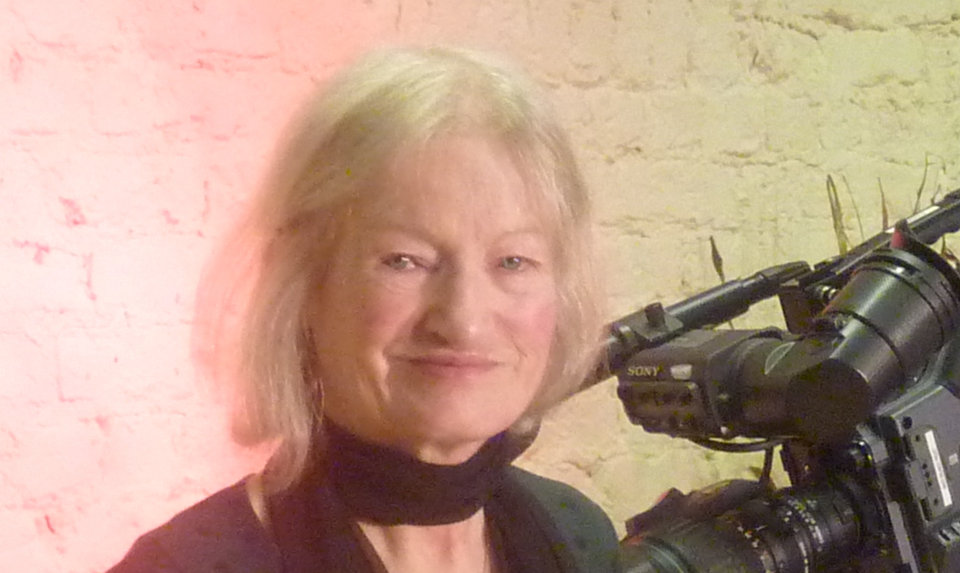Joanna moved to Dublin from Cornwall, at the age of 17, to enrol at the National University of Ireland. “It was 1967 at the beginning of all the riots and student protests in Paris, it was a very exciting time. When I first went there I found it very strange, it was a big culture shock for me coming from a small country village. It was a great liberation. I loved it.”
News of the developing Troubles in Northern Ireland spread quickly down South. “The thing I remember very clearly was Internment, the demonstrations and the burning of the British Embassy. Even though I didn’t know Belfast, I was very aware of what was happening.”
Joanna moved north with her husband and family to the Glens of Antrim in 1974. “It just seemed to us like a safer place, to be out of Belfast. In a way we were sort of safe because we were outsiders, we lived for seven years without a lock on the door, but we got a lock on the door and a dog. The only problem I’d ever had is if a soldier would come along and hear my (English) accent and start talking to me.”
“I had been offered part time work with the Workers Education Association and then I got work with the Open University. There was a group of people who were interested in women’s education and it was suggested to set up a Women’s Education Project in 1983 with the aid of a small grant from Belfast City Council and the Women’s Aid Federation. The idea was to go out and talk to local women’s groups. There was a lot of buzz around education. There was a real hunger and receptiveness to informal adult education.”
On the objectives and ambitions of the women’s education Joanna outlines, “We were thinking about running classes about women’s health, welfare rights. I’d have written the course materials and it would have been very much participatory methodology, dialogue and activities. I then began to be conscious that a lot of women were trying to organise things in their own areas. I thought it would be a good idea if we could have a course to support that kind of thing so we did a local organisers course.”
After a successful outing to Derry, people went on to set up well woman centres and the Derry Women’s Centre. “It was just a spark, it enabled things to happen. Having done that it was just being aware of what the needs were. Then the organisation began to grow because we attracted more funding.”
After spending a lot of time discussing and engaging with issues and ideas surrounding women in society Joanna says. “I suppose in the early days of the Women’s Education Project I began to be aware more of feminist insights about things. It took a while before I would have said that I’m a feminist.”
Joanna also worked in the prison delivering women’s studies courses. “It was purely the Republicans, no Loyalists ever did Women’s Studies. It was frightening being in a prison on a regular basis, but I learned a huge amount about the Republican struggle and about these men and listening to them about their experiences. They were so keen to learn, so keen to have dialogue.”
Joanna moved to Dublin and in 2001 became Director of National Women’s Council of Ireland. “The achievements, I think, were more of a presence in the public domain of women’s issues, fighting for changes in legislation and there were good changes in legislation particularly around violence against women, I think a lot of feminist energy has been put into that in the south. Trying to have an idea about equality as something that’s about, political equality, social equality, the recognition of different groups and the whole caring role of women.”
Feeling homesick Joanna returned to Belfast in 2009. “The whole time that I was in Dublin I used to come up at the weekends on the train. And as soon as that train past Dundalk and I saw the mountains I’d be thinking I’m going home. I’m interested in what has been happening as the Peace Process is playing out. “It’s more difficult for women or anybody working on social justice issues to get funding for it. During the whole time of the political conflict you could see how women were seen to be supporting a community, and were given funding to provided stability and that now is seen as unnecessary. Priorities have shifted and certainly the women’s sector has suffered for that.”
Joanna’s most recent venture is supporting the project Hanna’s House, which she describes as, “a Virtual Community, a place where you can have debates. It’s set up as a feminist project to promote discussion right across the island.”
On the future of Northern Ireland and her own personal desires, “From a feminist perspective I would like to see a much stronger feminist presence in politics. I think that social justice has to be a democratic justice. The more we can bring that debate and discussion into politics the more likely we are to bring about democratic justice.




